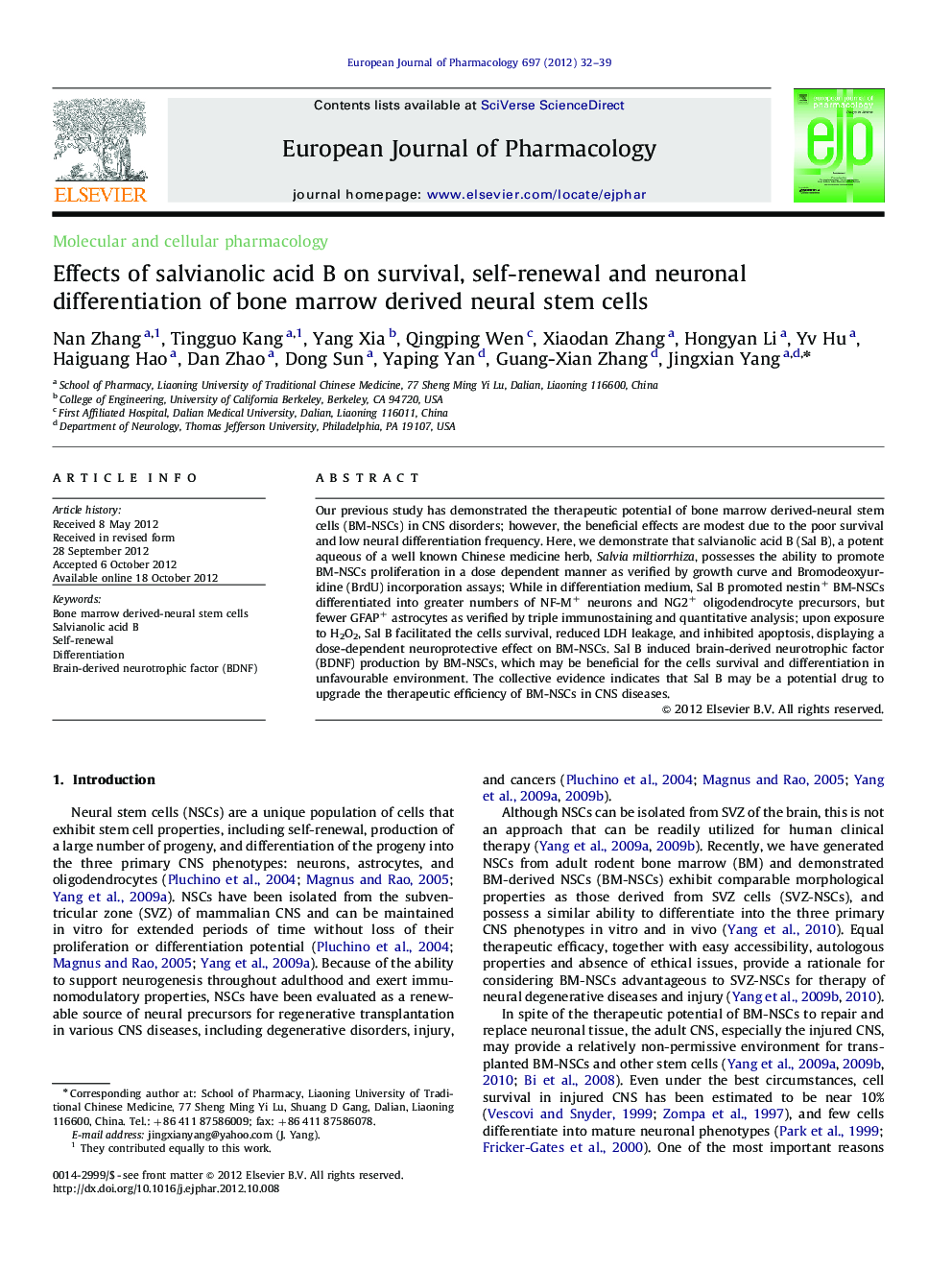| Article ID | Journal | Published Year | Pages | File Type |
|---|---|---|---|---|
| 5829236 | European Journal of Pharmacology | 2012 | 8 Pages |
Our previous study has demonstrated the therapeutic potential of bone marrow derived-neural stem cells (BM-NSCs) in CNS disorders; however, the beneficial effects are modest due to the poor survival and low neural differentiation frequency. Here, we demonstrate that salvianolic acid B (Sal B), a potent aqueous of a well known Chinese medicine herb, Salvia miltiorrhiza, possesses the ability to promote BM-NSCs proliferation in a dose dependent manner as verified by growth curve and Bromodeoxyuridine (BrdU) incorporation assays; While in differentiation medium, Sal B promoted nestin+ BM-NSCs differentiated into greater numbers of NF-M+ neurons and NG2+ oligodendrocyte precursors, but fewer GFAP+ astrocytes as verified by triple immunostaining and quantitative analysis; upon exposure to H2O2, Sal B facilitated the cells survival, reduced LDH leakage, and inhibited apoptosis, displaying a dose-dependent neuroprotective effect on BM-NSCs. Sal B induced brain-derived neurotrophic factor (BDNF) production by BM-NSCs, which may be beneficial for the cells survival and differentiation in unfavourable environment. The collective evidence indicates that Sal B may be a potential drug to upgrade the therapeutic efficiency of BM-NSCs in CNS diseases.
